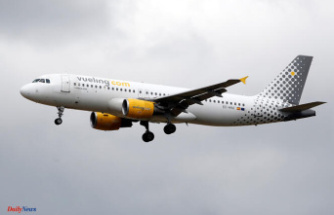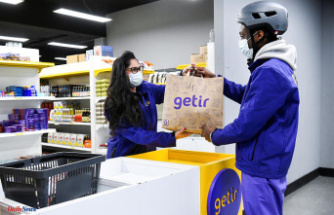Langkawi was the first destination to open its doors to foreign tourists as part of the domestic tourism boom. It could be followed by other destinations in the country if it is successful. Malaysia has seen more than 2,000,000 infections, while the number of deaths has risen to over 21,000 despite being locked down in June.
Vaccination has increased in pace as three quarters of the country's adult population are now fully vaccinated.
Malaysia's government has stated that a lockdown is not feasible and that Malaysians must learn to live with the virus. It will soon be declared an endemic. Langkawi was allowed back into the public eye after restrictions were lifted recently.
Before arriving on the island, travelers over 7 years old must be negative for COVID-19. Local media reported that 19 flights with holiday-makers are expected to land in Langkawi this Thursday, and that airline tickets were already sold.
The island was also visited by hundreds of ferry passengers, who were carrying hundreds of passengers.
ANCHORAGE (Alaska) -- Alaska's largest hospital began rationing care after a flood of COVID-19-infected patients.
Officials reported 1,068 new viruses infections, 13% more than last week. Officials from the state say that 201 Alaskans have been admitted for COVID-19 and 34 are currently on ventilators.
According to the state's chief physician, hospitals are still under stress and there isn’t enough capacity for patients with COVID-19 or other medical needs. There are approximately 1,100 beds in non-intensive care units across the state, and only 302 are available Wednesday. Only 21 ICU beds in the state are currently open.
___
TORONTO -- After removing nearly all restrictions, the leader of Canada's province of Alberta has apologized for his handling of pandemic. He said he would not introduce a vaccine passport or impose a work-from-home requirement two months later.
Premier Jason Kenney of Alberta declares a public emergency in the interest of public health. He says that Alberta might run out staff and beds for its intensive care units within ten days.
Now, indoor dining in pubs and restaurants has been banned
Kenney believes it is clear that the provincial government made a mistake in ending public health restrictions this summer. Because Alberta has the lowest vaccine rate, COVID-19 is affecting Alberta more than any other province in Canada.
___
RENO, Nev. -- Nevada Hospital Association urges people not to go to emergency rooms unless they are truly in an immediate need. This is especially true in northern Nevada, where coronavirus infection rates are running at double the rate in Las Vegas.
According to health officials, the Reno-Sparks area's 30-day average number of new coronavirus cases per 100,000 people has increased fivefold over the past six week -- from 354 at August's beginning to 1,621 now. The rate in the state is 951, while it's 720 for Clark County which includes Las Vegas.
According to the head of the hospital association, this has led to "many northern Nevada hospital emergency departments being full."
Officials from the state said Wednesday that 1 090 people were admitted to hospital for suspected or confirmed cases of COVID-19. This is a disease caused by coronavirus.
___
WASHINGTON -- The U.S. government is investing $470 million in research on long COVID-19 and its possible causes.
Wednesday's announcement by the National Institutes of Health included a grant to NYU Grossman School of Medicine. The goal is to enroll up to 40,000 children and adults. Researchers from more than 30 U.S institutions will be involved in the RECOVER effort.
"This is being taken seriously... on a scale that's not really been attempted with something similar to this," Dr. Francis Collins (director of the NIH) stated at a briefing Wednesday.
Collins estimates that between 10% and 30% of those infected by COVID-19 could develop persistent, new, or recurring symptoms that may last for months or even years.
Long COVID refers to symptoms that persist, recur or appear for the first time more than four weeks after an initial infection. It can also include heart inflammation and multisystem-inflammatory syndrome. This is a serious condition that can develop in children following a COVID-19 infection.
Long COVID symptoms include headaches, fatigue and brain fog. The virus may persist in tissues or organs, or overstimulate the immune system.












